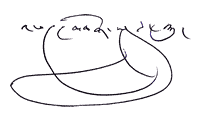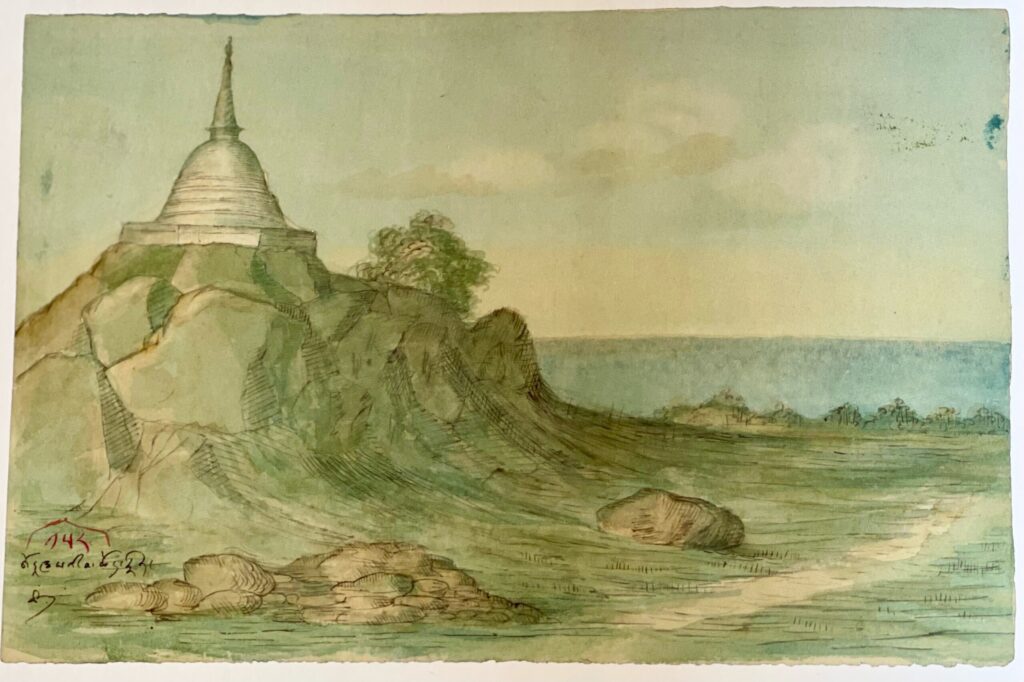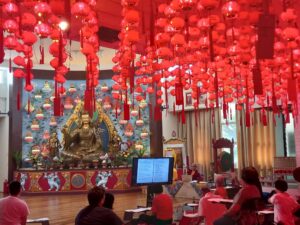Dear friends near and far,
As always, I hope this message finds you well, healthy and happy. It pains me to see the turmoil the world is undergoing at the moment, with a new war adding on to the sufferings of the pandemic. All my prayers of compassion go out for everyone to be free of illness, conflict, and hardship in these trying times. More than ever, these are times for practicing the Dharma for the benefit of all beings.
On today’s Guru Rinpoche day, I would like to share with you a few verses of advice from the great twentieth century philosopher, poet, painter, scholar, and activist, Amdo Gendun Chopel (1903-1951). Undoubtedly the most important Tibetan author of the twentieth century, Gendun Chopel was a brilliant polymath who was educated in both the Geluk and Nyingma traditions and upheld non-sectarian views throughout his lifetime. He spent a large part of his life travelling throughout South Asia and exploring the Buddhist holy sites, contributing significantly to our knowledge of Buddhist history and geography through his research. He left behind an extensive corpus of literature spanning many genres, and his writing is a testimony to his vast learning, understanding and wisdom. I have chosen the verses below to share with you because they can have a deep impact in transforming our ways of thinking. These verses carry many key pieces of advice regarding maintaining mindfulness, developing reflection, and turning our minds towards Dharma practice:
Through the compassionate power of the Three Jewels, Unfailing sources of refuge for those who rely upon them, All the meaningless delusions of samsara fall away— Bless me that my mind may turn towards the Dharma! No matter how you think about it, you will not find Even an iota of meaning in worldly endeavors. Turning the mind away from this short life, From now on I will endeavor in the sacred Dharma. Adulthood is as short-lived as summer flowers, The glow of beauty as fleeting as a winter rainbow; This human life lasts no time at all— I must now practice the sacred Dharma. When in pain, I hope to find happiness; When happy, I fear the coming of pain: I have not yet crossed over the abyss of hope and fear— I must now practice the sacred Dharma. Though we adorn it with jewellery, its nature is unclean; Though we lovingly care for it, its tendency is illness and disease; There is no essence to this impermanent body— I must now practice the sacred Dharma. The rich from their position of wealth complain; The poor from their position of misery lament; Each person’s mind carries its own load of suffering: There is no opportunity for happiness within samsara. All outer experiences of pleasure and pain Are just the display of one’s own mind alone: Inner reflections that are projected out, Never outer forms affecting us inside. With correct understanding, and through investigation, You cut through the root of the all-ground mind. Then, having crossed over the fog of appearances, You abide in the sky of ultimate reality. To say “it is” is fabrication. To say “it isn’t” is fabrication. Untainted by any such fabrication, The nature of mind is perfect buddhahood. Thoughts of “this is it” and “this isn’t” are like drops of water, One following the other endlessly. When they fall away in the state of focusless resting, You have arrived at the primordial ocean of basic space. In brief, appearances are projections of the mind, But mind itself is empty, baseless and rootless. Grasping on to baseless phenomena as a self, You and I both wander in samsara. When, not carried away by experiences, You look directly at the experiencer, Then you see the very face of the inexpressible— This way the path to buddhahood is short indeed. Thus, having swiftly severed the very root of this empty mind, With the blessings of the deities of the Three Roots, From the victors’ abode of the Great Perfection original purity, May I accomplish countless beings’ highest good!
Please read these verses carefully, reflect on them, and take them to heart.
With all my love and prayers,
Sarva Mangalam.

Phakchok Rinpoche
Translations
简体中文
繁體中文
Français
Ελληνικά
Bahasa Indonesia
नेपाली
Português
Español
ภาษาไทย
Українська
Việt Ngữ






Responses
I take refuge in the Guru, and in the Buddha, and in the Dharma and in the Sangha. Dear Rinpoche I miss you! And I hope to see you soon! I found your presence and your precious teachings at Garrison with Chokyi Nyima Rinpoche a few years ago unfiltered and fresh and profoundly helpful. Thank you Rinpoche for sharing these sacred verses of Gendun Chopel on the occasion of Guru Rinpoche Day!!! I pay homage to you and bow at your feet.
Thank you for the pith instructions. This is it! For this, I am very grateful.